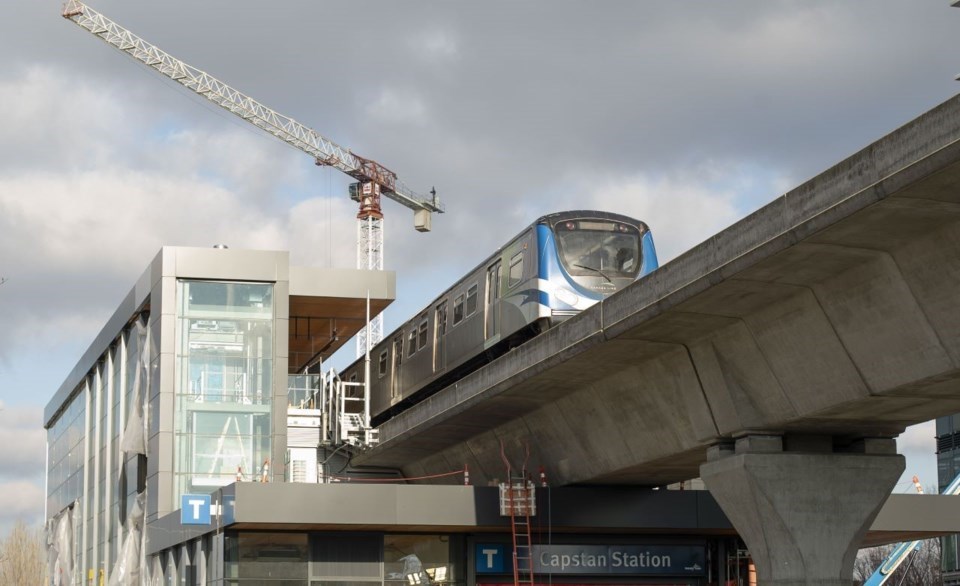B.C.’s transportation ambitions appear stuck in the slow lane, with one expert calling for a bolder vision to meet the demands of the province’s expanding population and economic growth.
“It'd be fair to say that our transportation infrastructure – we're talking about road, rail and air – is facing capacity limits,” said Andrew Pau, transport sector leader for Deloitte Canada.
The professional services firm is hosting the second annual Transportation Summit: Connecting with Purpose in downtown Vancouver Wednesday (May 22). The full-day event brings business leaders, academics and government officials together to discuss best ways to build sustainable transportation infrastructure in the province.
“A part of our challenge is how do we invest for the increased capacity but also switch some of the capacity to different modes, and then also make that transport system lower carbon intensity and more resilient as we get into more extreme weather events,” Pau told BIV in an interview.
Metro Vancouver’s population is projected to increase to 3.8 million in the next 25 years –up from 2.5 million today – posing challenges for business, government and municipalities to keep pace with the physical and digital infrastructure needed to keep goods and people moving, according to Deloitte Canada.
Pau said B.C. is very good at operating its transportation system, pointing to examples such as the recovery in transit ridership following the height of COVID-19 and the operation of some of the largest ports in Canada. However, he said the province is not bold enough in envisioning transportation for the future like some other provinces or American states.
For example, the Ontario government’s $16.2-billion Metrolinx's GO Expansion project will deliver faster and more convenient travel across the region. The government of Alberta recently announced the Passenger Rail Master Plan as a foundation to build the optimal passenger rail system for the province. And in Washington state, the Biden administration announced late last year it’s earmarking US$6.1 billion to help build the Cascadia high-speed rail corridor.
“We're missing some of that … the big visionary ideas, I think some other jurisdictions are doing a better job than B.C.,” said Pau.
“We do need to find the time right now to be a little more bold, a little bit more focused on the future of this province, and what are the investments that really need to be true in this place.”
This is not the government’s sole responsibility, he said, adding private-sector collaboration is a must.
“We can’t put everything onto the taxpayer. …It's too easy to say it's all the government's responsibility to come up with the right policies, the right tax incentives or the right grants,” said Pau.
He said the “essence” of Wednesday’s transportation summit is the way the public and private sectors can work together.
“Part of that will be looking at how our commercial sector collaborates with government to bring private investments into this province. … How do we make the province more attractive to investors? That's a joint government-commercial discussion.”
As B.C. makes efforts to transition to a lower-carbon economy, with the government’s CleanBC plan looking to achieve the 2050 net-zero emissions target, Pau said there is no “perfect solution.”
“I think our desire for perfect is the enemy of good enough at this stage. Trying to determine or predict the right technology that's going to drive our lower-carbon economy is what's slowing us down."
He said there are many solid cleantech companies in B.C. that deserve the opportunity to scale up and commercialize with the support of government and the private sector.
“If those companies succeed, they represent possibly the new employers in the new economy offering good-paying jobs and the opportunities to create Canadian technologies that can be exported, not just be consumed in B.C.,” said Pau.
“When you start thinking about transportation as a way to create the future for us in this province, that's what makes this really exciting.”





